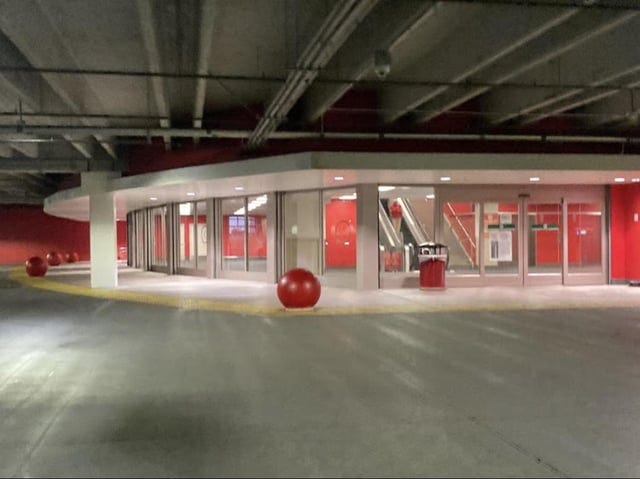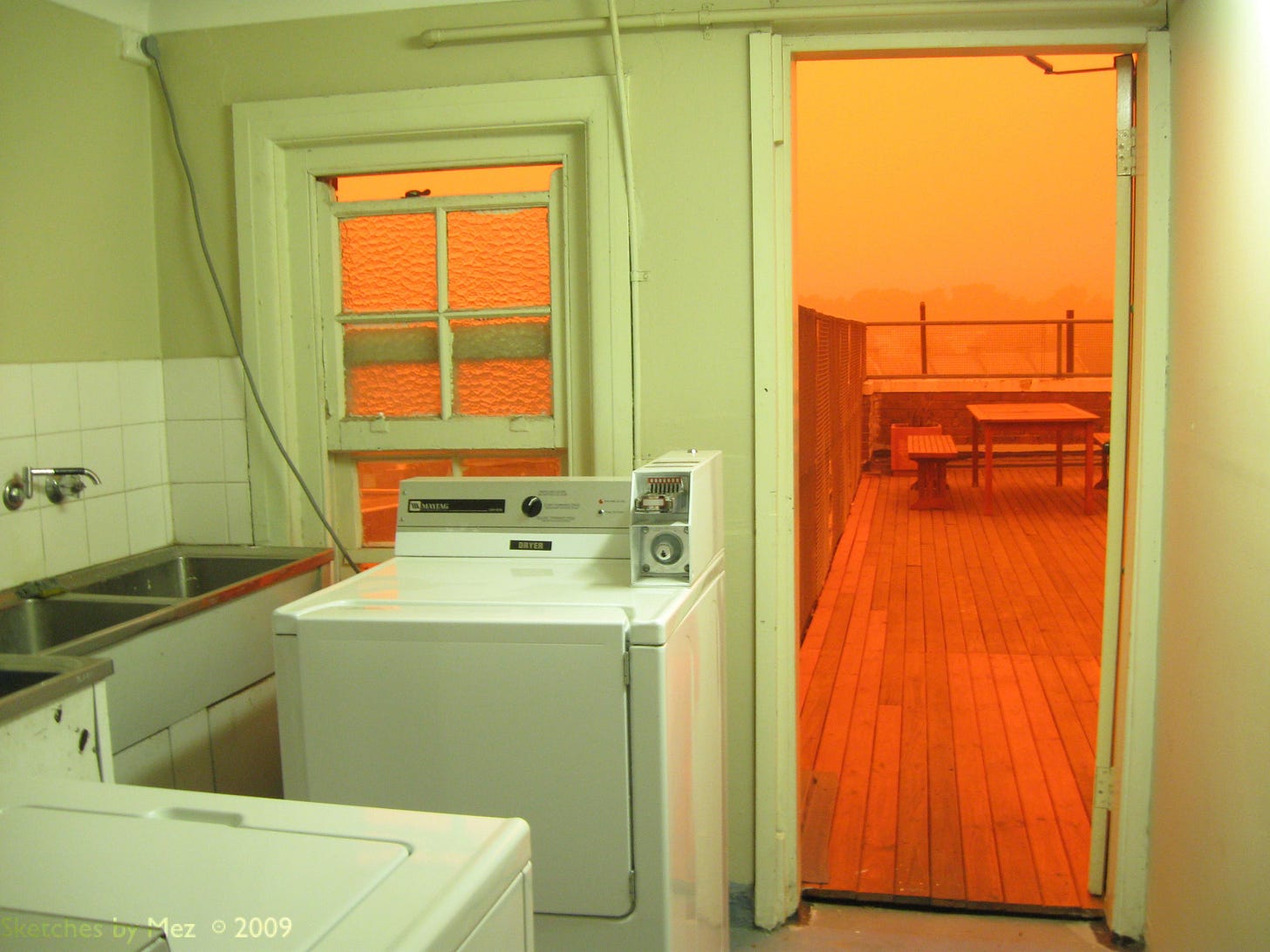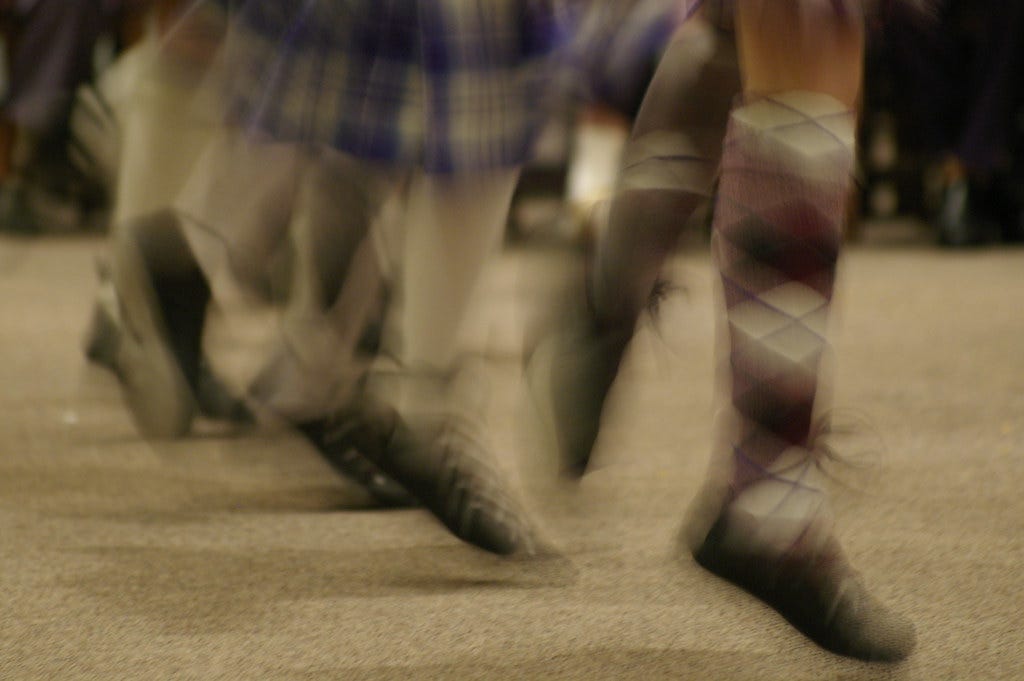I left New York because I was sick sick sick of people with ambition.
I had started to hate everybody on the street. I walked the dull smog and hated people who spoke internet—thoughts and rhythms stolen from screens. I hated the first thing they invariably asked you (what you did.) I hated how everybody in the city seemed to want something from you.
At the time, I didn’t realize they didn’t want something just from you. They wanted something from everything.
I shouldn’t have taken their hunger personally.
And I didn’t mean to move back to my hometown, but somehow it happened. It was just supposed to be a stopover—a few months to work out a manuscript and save money to journey out west. But then I downloaded Hinge on Thanksgiving weekend to see if anybody from high school was back in town and lonely and whaddya know, before a month was out, I was—quite possibly—in love.
I do things impulsively and without much logic (contrary to the logical thoughts I can convince myself I have thunk at any time.) I told myself I was going to keep going out with this guy only as long as I stayed in town; he was a fun and interesting distraction but surely nothing long-term. Then a year passed and then we were living together and then there was no way of denying it: I had moved back to my hometown.
About a year after the accidental move, I looked around my life and found it unrecognizable. Somewhere in the swirl of early relationship lust and sweat, I had lost the markers that once identified me. I didn’t hang out with cool friends every day. There was no chance of running into D-list celebrities.
All of a sudden, I lived in a highway city. And I didn’t even have a car. There was nowhere to walk and when I tried, the sidewalks were hazards. It seemed the only place to go was Target and I would go high and wander the flourescent aisles, mesmerized but resisting every consumerist impulse. I’d walk out of the store with just one candle and feel powerful.

It was the only thing that kept me from feeling like a complete and utter conformist failure: I could resist the siren song of Target aisles; I didn’t own a Stanley cup.
I had once wholeheartedly believed that a simple life of love and only love would fix everything. (By which I mean: ensure I’d never feel bad again.) Surprise: it hadn’t.
And that horrible surprise triggered an identity crisis.
Was “doesn’t own a Stanley cup” and “used to live in New York” all that I was now? I used to be on the fast-track to international success!!
This, people, is when the sad began.
The sadness could twist any aspect of my life and convince me it was logic.
Every time I scrubbed a dirty dish became an affront to feminism itself. Every Saturday night my boyfriend wanted to stay in instead of chat about inane nonsense with strangers in bars became proof that I had ruined my life. I began telling myself that I had mortgaged a bright future for a cozy reality. I had hollowed out my life for a guy…the one very specific, concrete thing you are not supposed to do if you are a smart feminist. (The One Thing!!!!!)

No, I began to think, I was wrong back then. I wasn’t sick sick sick of ambition. I love ambition. I am ambitious! I want to accomplish things! At this rate, I’ll never get a book deal…
When I was a child, my dad would show me the parts of any project he was tinkering on and ask if I could point out the problem. “It’s the engine oil, dad,” I would say, despite never having sat behind the wheel of a car. This is to say: at any moment, I can convince myself that I have properly diagnosed a problem.
But I think it’s the engine oil when he’s repairing a watch.
***
I made a friend a few months ago who spent years exploring the spiritual scene. She told me about her journeys in communities around the world: stories of cliques in ecstatic dance circles and gaslighting by spiritual influencers. “These people are more toxic than just normal, kind people,” she said. But she kept trying to succeed in these groups, she said, because she had fallen for the enlightenment trap: if she just stuck to her inner growth then one day, she thought, she would become enlightened and everything would be fine.

Last week, I talked with another friend who spoke of a similar disillusionment—but his played out in the corporate world. He thought if he just took one horrible gig, that would lead to a slightly less horrible job, and then eventually he would land in the place he wanted and everything would be okay.
I took both their stories as traps that other people had fallen into—until I realized I’d done the same thing by another name.
I had left New York because I knew that ambition would never make me happy. So I made myself enter a new era.
And happiness in this new era was so simple: daily walks, eating salads, calling friends, throwing open my bedroom windows every chance I got, opening myself to real, deep love. That was all it took. Simple shit.
But despite dropping ambition, I still wasn’t different from any New Yorker: I craved something from everything. I couldn’t just change my lifestyle. I needed a life where I’d Never Be Hurt Again.
Isn’t this just a 21st-century, consumerist conceptualization of nirvana?
***
The first stage of healing in America is realizing that happiness is not something that will happen down the line. It will never come from getting or achieving anything. When you figure this out, you start to focus on the present. That gets you a temporary high. You start to feel like you’ve figured everything out.
But the high of “healing” eventually wears off. Green juices and cold showers may make you feel good for a while—but not forever. The world will intervene. After all, you live in the world.
This isn’t a bad thing. In fact, you’re lucky if this happens fairly quickly. That’s all the more quickly you learn that healing isn’t a matter of Never Being Sad Again.
I was sad when my life felt too big. And I was still sad when my life felt too small. Still, these Goldilocks attempts at living are perhaps the only way we learn that no lifestyle is a bolster against the inevitable tides of life. You have to get firsthand knowledge of this: you have to continually go to places where you don’t recognize yourself. (To not only push yourself to become bigger but to see what happens when you become smaller, too.) You just have to try everything. You have to be happy. You have to be sad. You have to be big. You have to be small. Then eventually, you figure out that the thing you are sick sick sick of is the very thing you’re most afraid of in yourself. You realize that making yourself smaller is a form of ambition, too. It’s an attempt at emotional optimization.
***
I decided to walk by the train tracks the other day and found a patch of woods with broken beer bottles near the entrance. There was a soft dirt path winding through the dead trees, fresh bike track cutting a deep line down the middle. I took my shoes off and walked the dirt. I breathed in the smell of grass growing back after months of snow.
I found myself thinking: we know that we are responsible for our own happiness. Rarely, if ever, do we remember that we are also responsible for our own sadness.
Eventually, if you’re lucky, you’ll figure out that no matter what you do, life on this planet is not constant nirvana. Even Jesus, even Buddha cried out in pain. Learning how to live with that—that’s the whole point.
There was a rustle in the trees up ahead and a couple of kids popped out to yell, “Hello?”
I yelled back, “Hi!” and they ran away, in childhood terror and glee. Are emotions always so easily combined for children?
It’s 5am now as I write this. Despite the dark skies, the birds are starting to sing. Just last month, they were nowhere to be found.




Loved this